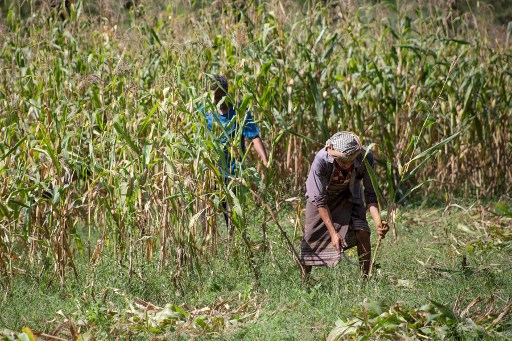Farmers in Tunisia grapple with cochineal insect infestation destroying prickly pear crops
(MENAFN) In Tunisia's Chebika village, farmer Amor Nouira has lost hope for his prickly pear cacti due to a devastating infestation of the cochineal insect, which has spread across North Africa. The 50-year-old Nouira's half-hectare cactus farm has been decimated by this invasive pest, which has affected about one-third of the country's prickly pear crops following an outbreak in 2021.
Initially, Nouira was enthusiastic about experimenting with prickly pear production. He hoped to gradually expand his investments and tap into international markets, particularly for the plant's natural oil. However, as the cacti deteriorated, he abandoned these plans and ceased any further investment in the crop.
Prickly pear, also known as Opuntia, is not only enjoyed as a food item but is also used in the production of oils, cosmetics, and body-care products. In Chebika and other rural areas of central Tunisia, many farmers have seen their prickly pear fields ruined by the cochineal insect, which has been a problem in North Africa since its spread began from Morocco a decade ago.
The cochineal insect, native to the Americas, feeds on the nutrients and fluids of the prickly pear, often leading to the plant's death. The resulting infestations have caused substantial economic losses for thousands of farmers who rely on prickly pear cultivation. Efforts by authorities to address the epidemic have so far struggled to keep pace with the damage, leaving many in a difficult situation as prickly pear remains a popular summer snack in Tunisia.
Initially, Nouira was enthusiastic about experimenting with prickly pear production. He hoped to gradually expand his investments and tap into international markets, particularly for the plant's natural oil. However, as the cacti deteriorated, he abandoned these plans and ceased any further investment in the crop.
Prickly pear, also known as Opuntia, is not only enjoyed as a food item but is also used in the production of oils, cosmetics, and body-care products. In Chebika and other rural areas of central Tunisia, many farmers have seen their prickly pear fields ruined by the cochineal insect, which has been a problem in North Africa since its spread began from Morocco a decade ago.
The cochineal insect, native to the Americas, feeds on the nutrients and fluids of the prickly pear, often leading to the plant's death. The resulting infestations have caused substantial economic losses for thousands of farmers who rely on prickly pear cultivation. Efforts by authorities to address the epidemic have so far struggled to keep pace with the damage, leaving many in a difficult situation as prickly pear remains a popular summer snack in Tunisia.

Legal Disclaimer:
MENAFN provides the
information “as is” without warranty of any kind. We do not accept
any responsibility or liability for the accuracy, content, images,
videos, licenses, completeness, legality, or reliability of the information
contained in this article. If you have any complaints or copyright
issues related to this article, kindly contact the provider above.
Most popular stories
Market Research

- Bitcoin Adoption On Sui Accelerates As Threshold Network And Sui Launch Phase 2 Of Tbtc Integration
- Falcon Finance Announced $FF And Community Sale On Buidlpad
- United States Fin Fish Market Size Forecast With Demand Outlook 20252033
- Bitmex And Tradingview Announce Trading Campaign, Offering 100,000 USDT In Rewards And More
- Virtual Pay Group Secures Visa Principal Acquirer License
- United States Kosher Food Market Long-Term Growth & Forecast Outlook 20252033






















Comments
No comment